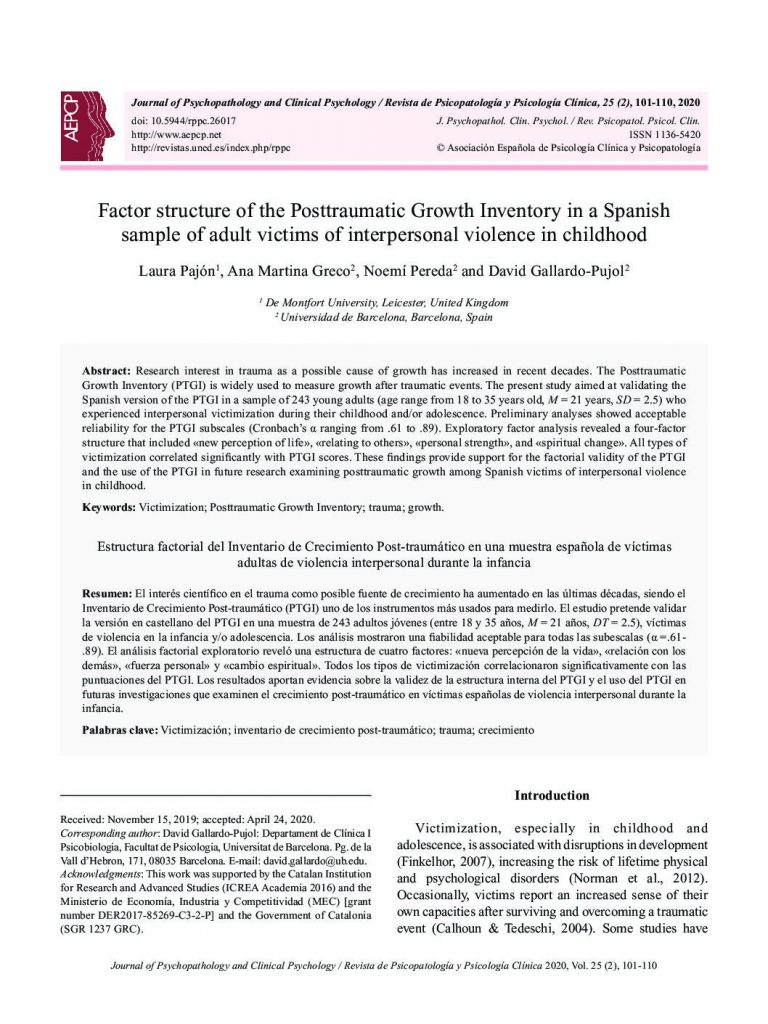Factor structure of the Posttraumatic Growth Inventory in a Spanish sample of adult victims of interpersonal violence in childhood

- Trastornos de atracción sexual hacia animales: Clasificación diagnóstica basada en una revisión sistemática
- Spanish version of the Adult Executive Functioning Inventory (ADEXI): Psychometric properties in adults with Autism Spectrum Disorders and Intellectual Disability
- Evidencias de validez y fiabilidad de la versión en español del Children’s Depression Inventory-Short en población peruana
- Factor structure of the Posttraumatic Growth Inventory in a Spanish sample of adult victims of interpersonal violence in childhood
- Decision making in adults with autism: The role of ecological executive dysfunctions
- Psychological distress in critically ill patients: Risk and protective factors
El interés científico en el trauma como posible fuente de crecimiento ha aumentado en las últimas décadas, siendo el Inventario de Crecimiento Post-traumático (PTGI) uno de los instrumentos más usados para medirlo. El estudio pretende validar la versión en castellano del PTGI en una muestra de 243 adultos jóvenes (entre 18 y 35 años, M = 21 años, DT = 2.5), víctimas de violencia en la infancia y/o adolescencia. Los análisis mostraron una fiabilidad aceptable para todas las subescalas (α =.61- .89). El análisis factorial exploratorio reveló una estructura de cuatro factores: «nueva percepción de la vida», «relación con los demás», «fuerza personal» y «cambio espiritual». Todos los tipos de victimización correlacionaron significativamente con las puntuaciones del PTGI. Los resultados aportan evidencia sobre la validez de la estructura interna del PTGI y el uso del PTGI en futuras investigaciones que examinen el crecimiento post-traumático en víctimas españolas de violencia interpersonal durante la infancia.



